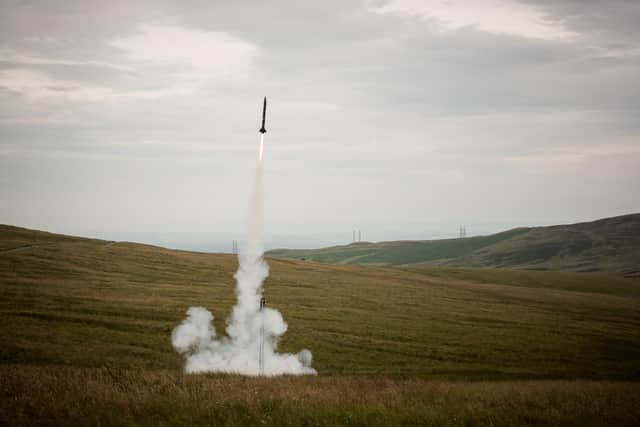Space tech: Global investment showing 'strong signs of recovery' but UK funding plummets
Scotland’s space sector may be reaching for the stars but new research suggests that investment into the industry across the UK plunged last year.
Seraphim Space, billed as the world’s first listed fund focused on space technology, or spacetech, said global investment within the sector had proved resilient in 2023, despite a slump in the wider venture capital market. The amount of money pumped into space-focused enterprises last year totalled some $6.9 billion (£5.4bn), in line with 2022’s figure and despite a slow start to 2023.
Advertisement
Hide AdAdvertisement
Hide AdThe final quarter of the year was the most active, with $2.2bn invested across 128 deals, up from $1.6bn in the third quarter, marking the highest number of recorded deals in a single quarter since reporting first began, according to the firm’s space index report.


But, while global funding activity held steady across the year, investment fell significantly in the UK, sliding by 24 per cent to $204.7 million (£160.9m), while the number of deals fell by almost a third. There were no specific break-out numbers for Scotland, where there has been a flurry of activity in recent years involving the development of spaceports and satellite technology.
In 2023, the UK ranked fifth globally in terms of investment, securing a strong second place in Europe, just behind Germany’s $291m. With 26 deals in 2023, the UK ranked third globally on that measure, trailing only behind the US and China. This achievement positions the UK as the leader in deal numbers within Europe, which Seraphim Space said was a testament to the region’s “vibrant” start-up ecosystem and investor interest.
Maureen Haverty, principal investor for Seraphim Space, said: “Despite an increasingly challenging economic period, investment into the space tech sector globally has continued to show great robustness and strong signs of recovery in the last year. While the venture capital market has struggled, spacetech is bucking trends with sustained levels of high investment. What’s even more promising is the growing number of institutional and private equity funds now contributing to growth-stage investment activity and participating in larger rounds. The renewed investment focus from governments around the world, a burgeoning private equity market and a surge in M&A [merger and acquisition] activity means 2024 is on track for a strong year of investment.”
Globally, all of the largest rounds for the final quarter of 2023 were concentrated in capital-intensive businesses, which own or operate assets in space. Businesses with capital-light models have, in many cases, strategically avoided seeking growth capital on less favourable terms, the report noted, while capital-intensive ventures are returning to the capital markets since they more immediately require funding to achieve scale.
The latest data also highlights that the “beyond Earth” sector - focused on developing infrastructure for space such as lunar landers or space stations - has seen sharp rates of growth as both government funding and global investors begin to focus on solutions and technologies to develop their space capabilities.
The past year was a record-breaking one for spacetech M&A, with 30 transactions completed versus 22 the year before.SaxaVord spaceport vertical rocket launches to go ahead on Shetland with CAA approval
Comments
Want to join the conversation? Please or to comment on this article.